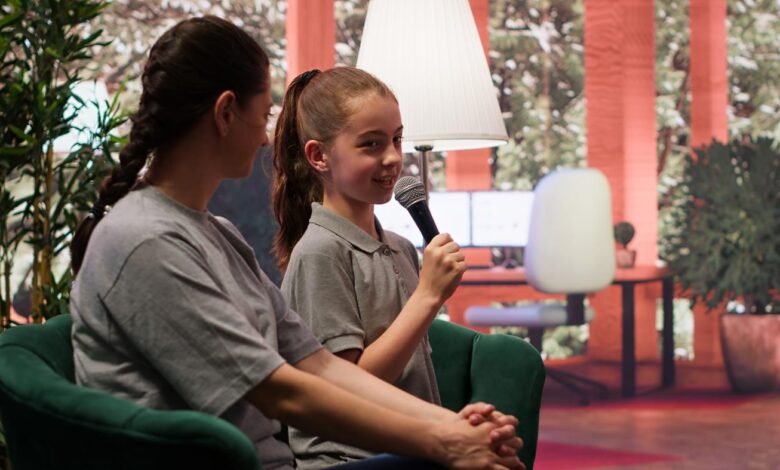Exploring the Role of Debate and Public Speaking in UK Schools

Debating and public speaking are considered integral parts of the British education system that allow students to obtain invaluable skills that can be applied, both in and out of class. These activities promote intellectual development along with enhancing self-confidence, critical thinking, and communication for students which will propel them to success in academics and their future professions.
Debates and public speaking thus, are part of curricula in schools, as extracurricular activities and competitive events well mould rounded persons who can critically interact with their environment. If you’re looking to improve your skills in these areas, you can always seek help from Write My Assignment For Me to get expert help and insightful guidance, ensuring you excel in assignments related to debate, public speaking, and critical thinking.
The Impact of Debate on Students
Public speaking and debate form two crucial aspects of the curriculum offered in UK schools. They have greatly helped the student develop critical thinking, communication, and confidence which are vital life skills. Officially and unofficially, these exercises have increasingly been incorporated into school curricula and extracurricular programs.
If you are interested in developing your skills in such areas, the ebook writing service can be used to produce interesting content that can perfect your argumentation and communication skills. Let’s examine how debate and speaking in public influence students’ growth in the United Kingdom.
Improving Analytical and Critical Thinking Capabilities
They force students to delve deeply into complicated topics, debate and speak to the audience to aid in the development of critical thinking skills. Students must study and comprehend the subject they have selected, evaluate supporting data, and formulate well-reasoned arguments to argue.
They are also encouraged to think analytically by learning how to assess other viewpoints and anticipate rebuttals. Their capacity to evaluate information impartially, make wise decisions, and communicate concepts effectively is improved by this process.
Enhancing Presentation and Communication Skills
Speaking in Public and Debating are essential components of good communication training. Students must use language and delivery that are appropriate for their audience to express concepts in both tasks in a clear, confident, and convincing manner. They gain the ability to employ persuasive strategies like ethos, pathos, and logos to support their positions and develop a logical argument structure via practice.
To effectively engage an audience, public speaking also requires students to become proficient in nonverbal communication techniques including body language and eye contact. From giving presentations in class to speaking at conferences or interviews later in their employment, these abilities equip students for a variety of scenarios.
Increasing Self-Belief and Personal Growth
Debating and public speaking competitions can go a long way in building confidence in the student. Speeches in public help pupils overcome one of the most widespread phobias people have, which is the fear of public speaking.
As they begin to engage more in speaking in public, students start feeling more confident about their capacity to express their thoughts. As students practice handling pressure, responding to criticism, and adjusting to unforeseen obstacles, the preparation and presentation of ideas in a debate also help them develop resilience.
Promoting Cooperation and Teamwork
Students are frequently required to work in groups during debates, which promotes cooperation and teamwork. Debaters may have to plan their approach to effectively articulate their stand, get along with fellow team members, share research, and fine-tune arguments.
In this team debate, students are also educated on effective collaboration with others, respect for different perspectives, and convergence of views into an integrated argument. The communal nature of teamwork improves a sense of social responsibility among students where negotiation, compromise, and constructive feedback occur.
Encourage Social Responsibility and Community Involvement
Public speaking and debate make one feel more civic-minded and socially responsible. Many discussions centre on urgent national, international, or social issues, including equality, human rights, and climate change.
Interaction with these subjects inspires the student to better understand current affairs and the larger world. It instils a sense of obligation to make contributions toward society. Strong debate skills can be developed by the development of thoughts regarding these important issues, thereby making the students informed and active citizens.
Debate encourages critical reflection on issues involving moral dilemmas, such as the considerations a policy makes on people and actions to undertake. This exposure prepares students to stand up on issues that matter to them, thus making them active and responsible citizens who can contribute to democratic processes and changes in society.
Academic and Professional Advantages
There are several academic and professional advantages to developing debate and public speaking skills. Students gain the ability to properly express their thoughts, organize arguments, and use evidence in the classroom; skills that enhance writing, reading comprehension, and analysis.
Students become more skilled at obtaining and combining knowledge as a result of these exercises, which help develop their research abilities and intellectual curiosity. Strong communication abilities are widely regarded in the workplace, especially in professions like business, politics, law, and media.
Getting Ready for Future Jobs
Students who participate in debate develop skills that directly relate to career success in a wide variety of professions. Professions like law, politics, media, business, and education have a high demand for the ability to communicate and think critically, and persuasively. Debaters also learn how to work with others, how to structure time, and how to perform under pressure very important skills for the job. Developing such transferable skills within a debate enhances the competitiveness of students when entering the job market as assured, articulate, and confident professionals capable of meeting complex challenges.
Summary
Speaking in public and denating foster critical thinking, enhance communication, increase self-esteem, and promote civic involvement; all of which are essential for students’ academic achievement and personal growth.
By attending these events, the students acquire and learn some skills that will become very important in helping them achieve success in their coursework and future employment. Thus, it is hardly surprising that there are still intact components of the curriculum in UK schools, shaping the future leaders, thinkers, and citizens.








